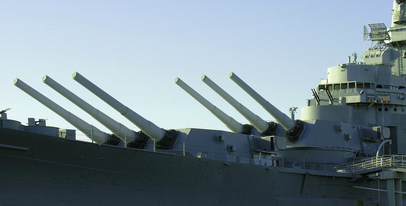
It was March of 2000, more than a year before the attacks of 9/11, but I wrote a column that, in retrospect, seems eerily prophetic. In it, I noted a recent opinion
| | poll in which Americans had ranked foreign policy matters 15th on a list of their top concerns. “As a nation, we consider 14 other things more important than our dealings with other nations,” I wrote, “14 things more important than whether Osama bin Laden will strike again or what to do about (Slobodan) Milosevic and Saddam Hussein, or whether to trade with China. … Yet if there is any single thing that quickly could bring good times to an end in this country it is a foreign crisis … or a terrorist attack on our own soil.” You don’t need a Ph.D. in political science to look back through the last 12 years and see what that 2000 election should have focused on. Foreign diplomacy is to the federal government what curbs, gutters and storm drains are to City Hall. On fair weather days, when all is calm, nobody thinks about them. But when they go wrong, people can think of nothing else. This past week proved the point again, as fanatics stormed the U.S. embassy in Libya, killing the ambassador and two others. And we thought Libyans were grateful to us for helping them overthrow a dictator. One other thing has happened to me personally over the last 12 years. My oldest son grew up, passed the Foreign Service exam and now works at a U.S. consulate in China. I’m sure he doesn’t tell me everything that occupies his time. He is fluent in Mandarin and Korean and his post is near the border of North Korea. But he does tell me about the more mundane parts of his job — examining applicants for visas to come to the United States, visiting expatriate Americans in the area and providing an official presence at local events. He tries to spread goodwill. He lives in an apartment in the center of town, with his wife and my two grandchildren. I worry about them. But I would worry more for the United States if we didn’t have people like them, and like Chris Stevens, the U.S. ambassador to Libya who gave his life for his country. I have returned to Washington several times for similar State Department briefings. Each time, I heard a secretary of state express thanks to workers who put country ahead of more comfortable lives here at home. On one such visit, we met with John Negroponte, who had just accepted the assignment to become Iraq’s first ambassador after the overthrow of Saddam Hussein. I marveled that anyone would willingly take on such an assignment. “I will work with the people of Iraq to enable them to take ownership in their own country,” he told us stoically. That was eight years ago, and we all know how elusive that goal has been. As a nation, we’ve become a bit more aware of foreign policy issues over the past 12 years. A recent Gallup Poll found that terrorism and international issues finished fourth on a list of concerns. But I still don’t think many Americans get it. They focus on the size of the defense budget but give scant attention to the State Department, which gets about 1 percent of the total pie. I guess that’s human nature. We focus more on the Police Department than on ways to keep people from committing crime. As Secretary of State Hillary Clinton said in the preface to the most recent State Department budget proposal, diplomats “reduce the threat of nuclear weapons, stabilize conflict zones, help secure our borders, fight international criminal trafficking, counter violent extremism, protect and assist Americans overseas” and make free trade possible in many areas. Too bad we notice only when things go wrong. |

 RSS Feed
RSS Feed

